Red-tailed Hawks in North America are “sit and wait predators” who do most of their hunting (60 – 80%) from elevated perches. Though they do hunt from the air, that is not their primary hunting style. In fact, availability of elevated perches is a key factor in determining their foraging distribution.
Antelope Island is largely treeless and without power poles so Red-tails tend to be found in specific locations on the island where elevated natural perches are available. One of their favorite foraging spots is an area where there are large outcroppings of Farmington Canyon Complex rocks jutting out from the side of a small mountain, which is where I found this bird hunting voles.
1/1600, f/7.1, ISO 400, 500 f/4, 1.4 tc, not baited, set up or called in
This is one of two juvenile Red-tails that frequently hunted from those rocks but most of my shots were of this particular bird, apparently because it was more acclimated to the occasional traffic on the nearby road (from where I was shooting from my pickup).
Here the hawk is intensely watching for voles in one of the grassy areas below the rock. I’ve cropped and composed this image as I have to emphasize the steeply sloping rock and the direction of gaze of the bird.
1/1600, f/7.1, ISO 400, 500 f/4, 1.4 tc, not baited, set up or called in
The bird would usually take off in my general direction when it spotted a vole in the grass – a nice change of pace from their more common practice of taking off away from me which simply adds to my collection of butt shots.
1/2500, f/7.1, ISO 500, 500 f/4, 1.4 tc, not baited, set up or called in
The initial flight was typically powered for a few wing strokes during take-off but since the prey was downhill from the perch…
1/2000, f/7.1, ISO 500, 500 f/4, 1.4 tc, not baited, set up or called in
the hawk would usually glide in for the potential kill.
1/2000, f/7.1, ISO 400, 500 f/4, 1.4 tc, not baited, set up or called in
Here the bird is getting closer to a vole and is quite close to the ground, as evidenced by the change in flight posture.
1/2500, f/7.1, ISO 400, 500 f/4, 1.4 tc, not baited, set up or called in
Typically this particular hawk returned to one of the rock perches with empty talons. I suspect that the young birds hunting skills weren’t yet well honed but I’ll sure give it credit for trying because it repeatedly made attempts at prey in the grass. I found myself internally cheering “him” on every time he came up empty.
Something about this image puzzles me a bit. I can’t figure out why the tail isn’t sharper than it is. It appears to be in almost the same plane as the head and I certainly had enough shutter speed.
Oh well, just another photography quandary, I guess. After all, I’ve got to remember that photography isn’t an exact science…
Ron
Note: a few of these images are out of sequence. My intent was to show hunting style and I didn’t capture everything I wanted to demonstrate in a single hunting flight.


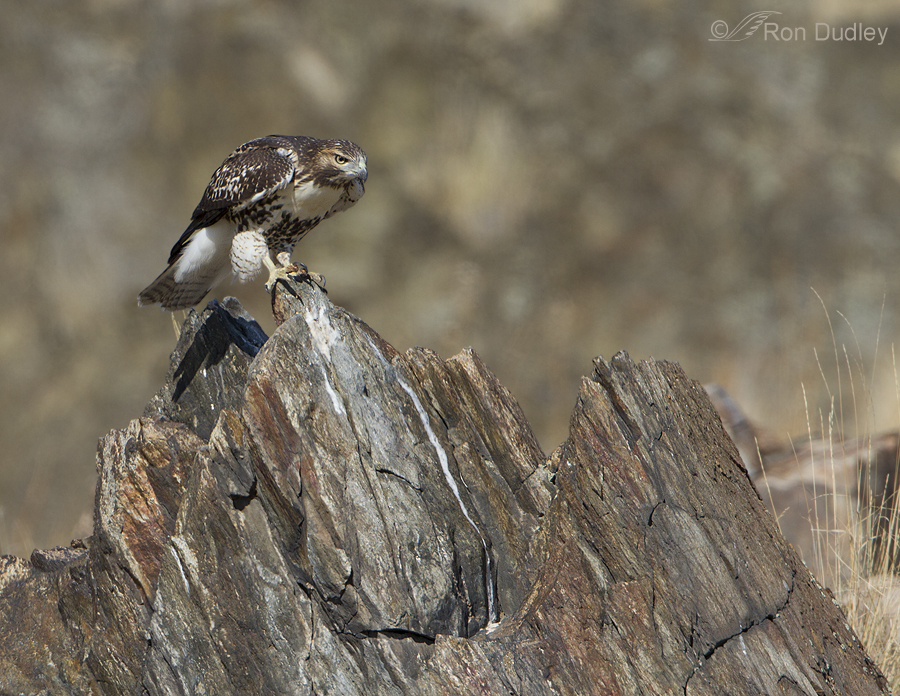
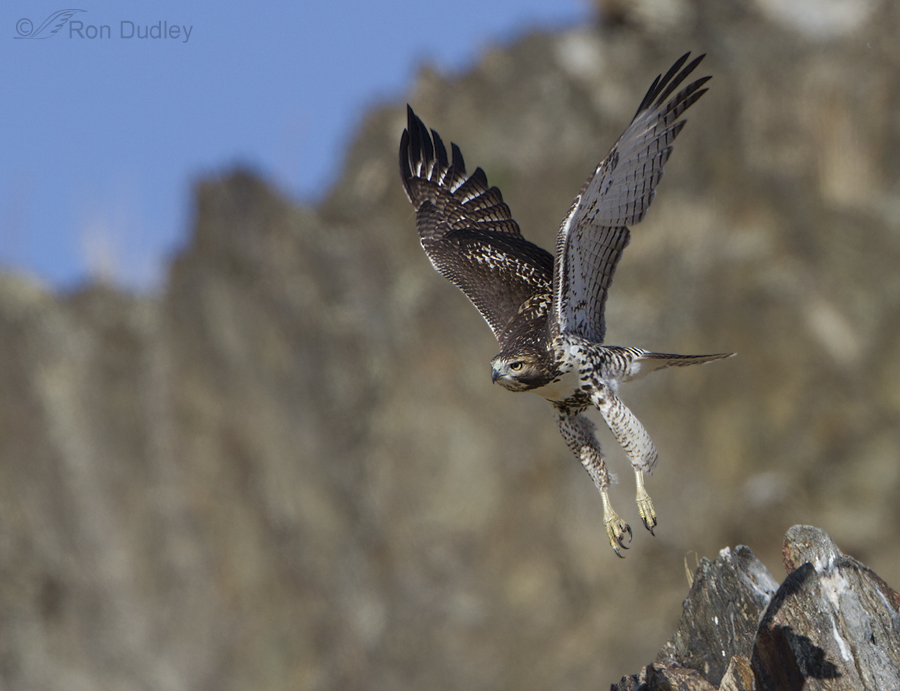
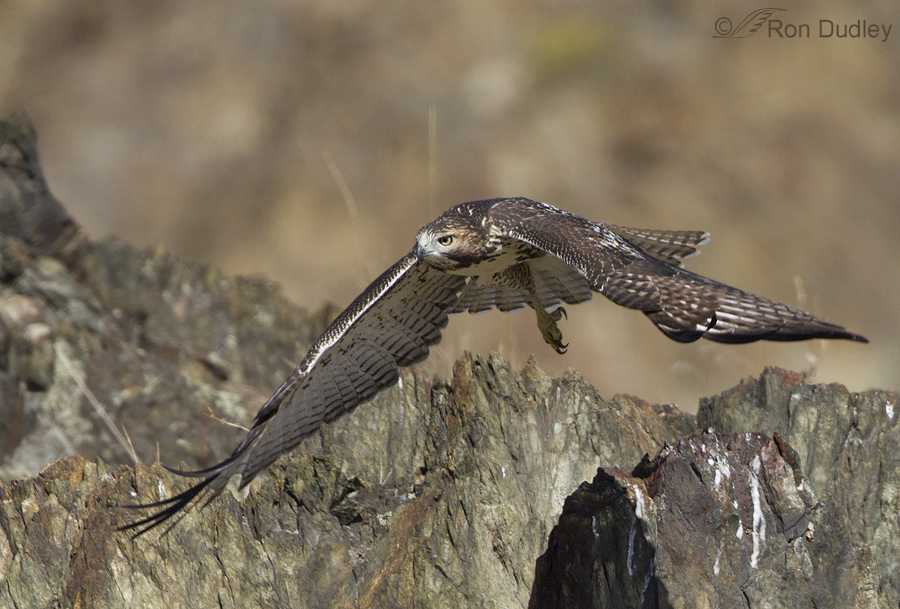
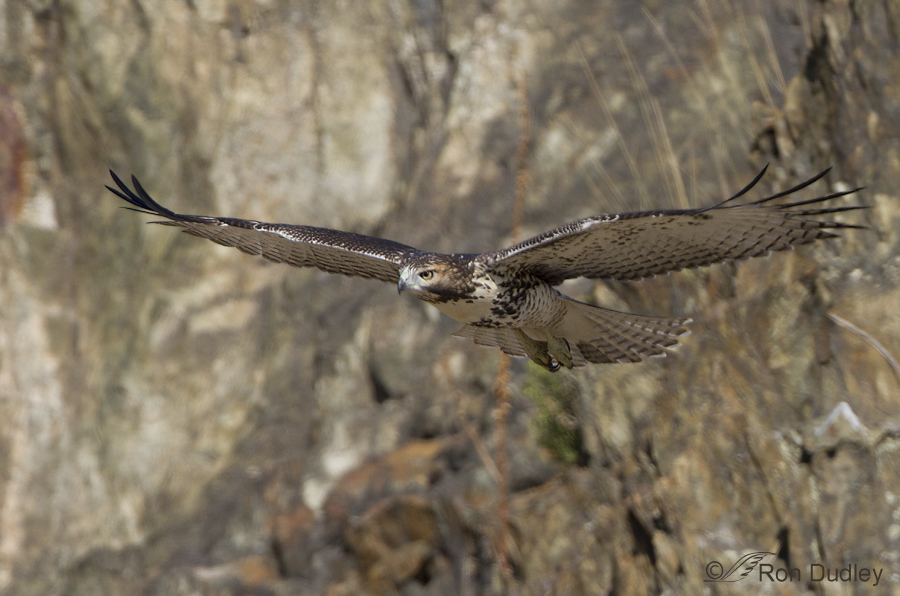
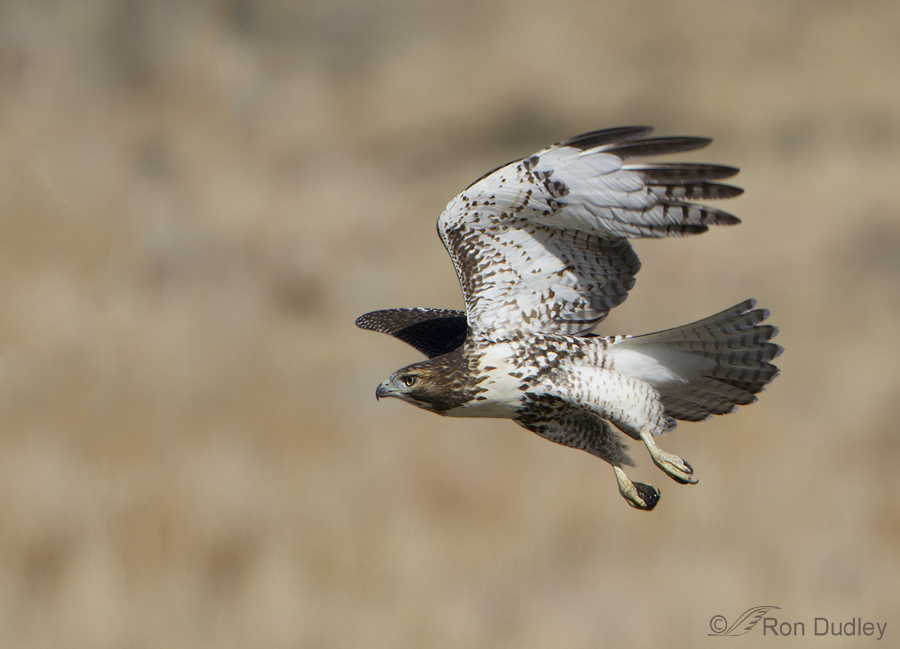
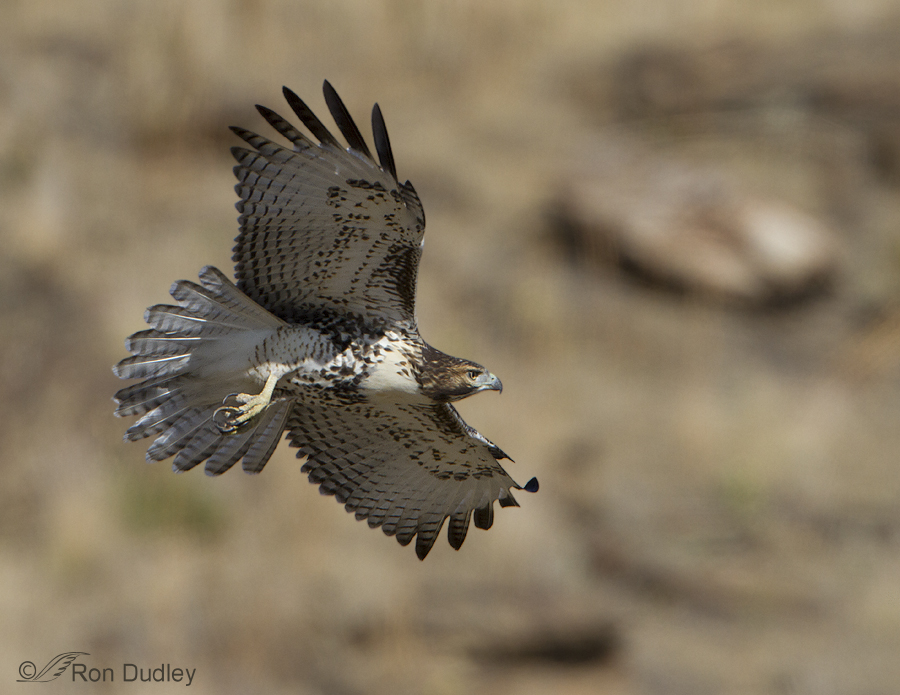
Ooh and aah. They are so very beautiful. Thank you.
Superb series, Ron! I love your ability to find vantage points to capture these hunting sequences. As to the tail focus, perhaps you caught the bird as he was trimming his rudder? Although seems your shutter speed would have been able to freeze that instant. Dunno.
Thanks, Wally. The vantage points are still there but I’ve sure been having a hard time finding the birds lately…
BEAUTIFUL! One of my favorite birds…always LOVE to see the “spread fingers” effect of the primaries of all raptors in flight…can’t look at them without thinking of the hawk with the “Mohawk, though.
LOL. That “Mohawk Hawk” really made an impression on you, didn’t it, Patty? Thank you.